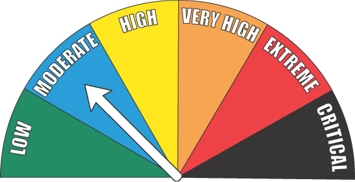The Senate is basically an oligarchic institution, so it’s no huge surprise that many senators gave more weight to the interests of fossil-fuel industries than they did to the public interest in mitigating climate change and developing clean energy. Oil and gas groups outspent green groups 7 to 1 — and that doesn’t count Big Coal money. Exxon alone outspent all green groups together.
Still, even for a cynic like me, it’s striking just how little moral weight climate change carries in the Senate. As in, none. There’s absolutely no sense of urgency, no sense that there’s anything to risk by being crass and cavalier about it. Senators who claim to accept the basic scientific facts are dubbed “moderate” even as they go on to treat climate policy with all the seriousness of an earmark haggle. Ryan Lizza’s New Yorker piece on the climate fight offers several dismal examples:
As for Olympia Snowe, the moderate Republican from Maine, who was known for stringing Democrats along for months with vague promises of joining their legislative efforts, she seemed to have a new demand every time Kerry, Graham, and Lieberman sat down with her. She also made it clear that granting her wishes—everything from exempting home heating oil from greenhouse-gas regulations and permanently protecting Georges Bank, a Maine fishery, from drilling—would not guarantee her support.
Imagine saying, “Yes, I will support your historic effort to address the imminent threat of climate change … but only if you hook me up on the home heating oil thing. And still probably not.” That’s how “moderates” roll.
Or how about this:
Murkowski was up for reëlection and would soon be facing a primary against a Sarah Palin-backed Tea Party candidate. Her price for considering a climate-change bill with John Kerry’s name attached to it was high: she handed over a set of ideas for drastically expanding drilling, which included a provision to open the Arctic National Wildlife Refuge to oil companies. Democrats had spent decades protecting ANWR, and even Graham didn’t support drilling there. But he passed the Murkowski language on to his colleagues to see how they would react.
Your state is literally melting and you a) hold climate action hostage to oil drilling in protected areas and then b) bail and badmouth the bill anyway. That is hella-moderate.
This might be my favorite:
Blanche Lincoln, of Arkansas, told Lieberman that she had a major oil refiner in her state—Murphy Oil—and she wanted to make sure that any cap-and-trade bill protected it.
Thus is the fate of future generations made hostage to Blanche Lincoln’s buddies at Murphy Oil. They’re no Wal-Mart or Comcast, but they’ve coughed up $31,750 over the last five years. Surely they’ve earned veto power over the nation’s energy policy.
One more:
The top ask of Senator Debbie Stabenow, of Michigan, was to insure that incentives given to farmers for emissions-reducing projects—known as “offsets”—would be decided in part by the U.S.D.A., and not just the E.P.A. “Ultimately, farmers aren’t crazy about letting hippies tell them how to make money,” [Lieberman aide Danielle] Rosengarten said.
Stabenow will help save the world as long as they don’t let hippies tell farmers what to do. That just violates the natural order of things! Farmers don’t get regulations, they get subsidies. Oh, and veto power over the nation’s energy policy.
What you never hear in these negotiations is the faintest echo of the actual scale and urgency of the problem at hand. Climate change, fossil-fuel dependence, a clean energy race in which America’s being left behind — the whole thing is treated by “moderates” like some idiosyncratic left-wing preoccupation, nothing you’d want to go spending real money on. Nothing worth putting a dent in Murphy Oil’s bottom line.
I can’t count how many times in the last few days I’ve heard people say, “the bill never had a chance in the Senate.” But that lets the people involved off the hook too easily. And they are people — human beings, with agency, making decisions. They could treat governing with a degree of moral seriousness, but they choose not to. They deserve to be called out and shamed for it, not treated like some immutable feature of the landscape. It’s hard to see how we ever get to reasonable national energy policy if the bottleneck for all domestic legislation continues to devolve into equal parts oligarchy and ignorance.



